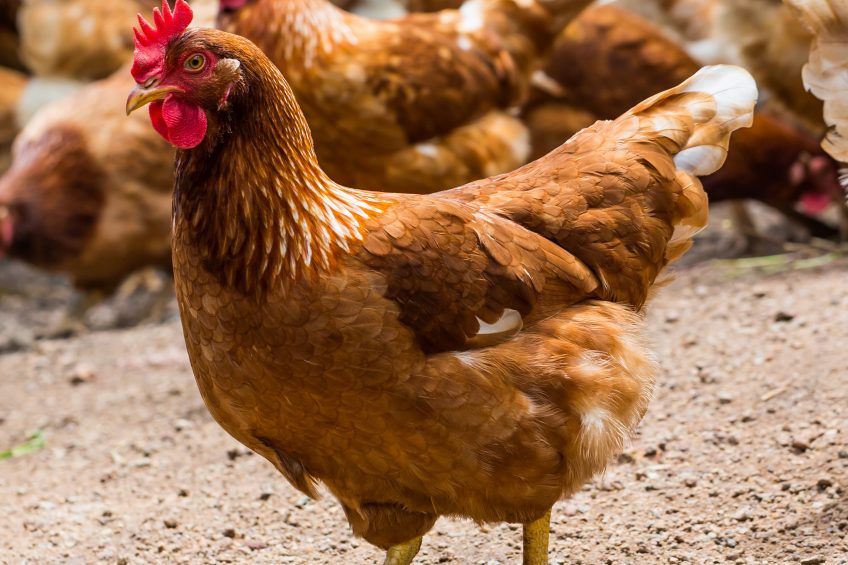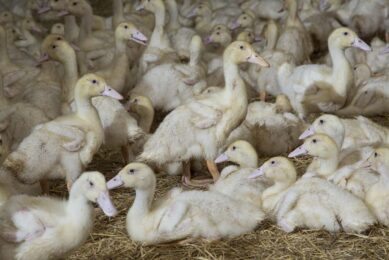The growing case for new AI control methods

Vaccination against avian influenza and changing consumer habits were just two topics that featured at the latest International Egg Commission meeting, held in London in early April. Poultry World reports.
Vaccination is increasingly being considered as a tool in the warchest against avian influenza.
“If you have these recurrent episodes of avian influenza, and if the virus is here to stay, can we come up with additional measures beyond culling and biosecurity – how we normally eliminate these pathogens,” Arjan Stegeman, of Utrecht University, asked the International Egg Commission conference in early April.
He cited growing free-range and organic farming across the western world, and suggested that if poultry farmers cannot prevent the introduction of the virus, via wild birds, then why not consider immunising against it.
“In a practical sense, you would want these vaccines to be able to prevent infection when exposed, in case of an emergency situation.
“In large parts of the world AI is already endemic and farmers want to use vaccination as a tool to eradicate avian influenza, said Prof Stegeman.
But trade and, to an extent, a lack of investment in suitable inoculations had held back their development and implementation.
New traits
In addition, the latest pathology of avian influenza that emerged in 2013 can be characterised in three ways – affecting a large number of countries, a relatively large number of outbreaks and a wide range of serotypes, according to Aleandro Thiermann, of the OIE.
He pointed to the latest OIE report, released in February 2018, which puts the number of outbreaks so far this year at 33 in domestic poultry throughout the world, affecting primarily Asia.
Since 2013, 120 million birds have either died or been destroyed because of avian influenza, with 60% of that total in Asia. Some 860 cases of human infections caused by H5N1 have also been reported.
Across the globe, last winter had slightly fewer outbreaks, when compared with previous years, but AI remains widespread, he explained.
Year round
Kevin Lovell, adviser to the IEC, said that the disease was no longer as seasonal. “Before, in many countries it was a disease of winter – like influenza is largely for humans – but not exclusively so.”
He suggested that the policy of “stamping out” the disease when found in domestic poultry may not be the best method, given that it does not necessarily keep the disease away. “It’s clearly successful if it does get rid of the disease for a period – but how long is long enough?”
“If the disease if different, we may have to manage the disease differently.”
The OIE’s standards may need to be adjusted to reflect this changing situation, suggested Mr Lovell, and that is why the IEC has produced a 12-point document outlining the potential benefits of vaccination.
“Not all of the issues around vaccinations have been resolved as of now, but to ignore vaccination as one of the future control strategies and management strategies would be unwise in our view.”
Evolution
He said the current stamp out policy may evolve to a more nuanced system, that could involve controlled slaughter to manage risk. “When much of the [OIE] standards were written, the conventional way was that low pathogenic avian influenza came from wild birds into domestic poultry, and after a number of cycles it became highly pathogenic.”
“Now, quite a lot is coming in to sheds as high pathogenic.”
| Under 35s fundamentally changing retail Millennials – consumers born around the turn of the 21st Century – are helping to drive change through the long-established and stable model that has allowed consumer goods businesses to thrive since the 1940s. “Millennials are spending six hours online every day,” explained Jessica Moulton of management consultants McKinsey & Company. “This has a profound effect on the way the relate to brands, and make choices when it comes to consumer goods.” The generation that follows millennials is changing even more fundamentally, with many choosing not to learn how to drive and shunning alcohol, as an example. For brands, in the consumer goods market, it can be quite a sobering challenge, said Ms Moulton. Those consumers are seeking out new, “authentic” products that they perceive as more independent. Compared with Baby Boomers, Millennials are two thirds more likely to believe that newer brands are better or more innovative, two and a half times more likely to prefer shopping in independent stores, and four times more likely to say they would avoid buying products from big consumer goods stores. There has been an explosion in small brands as a result, explained Ms Moulton. It allows retailers to add a price premium, and differentiate. In addition, brands that are perceived to be healthy, or better than conventional products are experiencing strong growth. “We think that consumer goods companies will need to get good at the kind of skills that it takes in order to cultivate these small brands and help them thrive.” |
| President’s point Consumers are increasingly seeking more and more information about where their food comes from – and it will be a major task for the egg industry to ensure it is transparent and sustainable in the coming years. “People want to know that if we are using animals in agriculture that they are being cared for humanely, they want to know that they we are concerned with the environment and that companies are doing more than just maximising profit,” according to Tim Lambert, president of the International Egg Committee. Furthermore, doing the right thing does not come at the expense of profitability, rather, it prevents the “catastrophic impact” of getting it wrong. “Damage to our brand and reputation can be immeasurable. We need to be proactive, understand where society is going and to lead with a vision of continuous improvement. I think this will elevate this industry to the incredible potential we have.” |
Join 31,000+ subscribers
Subscribe to our newsletter to stay updated about all the need-to-know content in the poultry sector, three times a week. Beheer
Beheer








 WP Admin
WP Admin  Bewerk bericht
Bewerk bericht